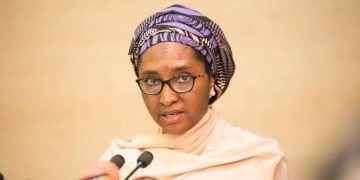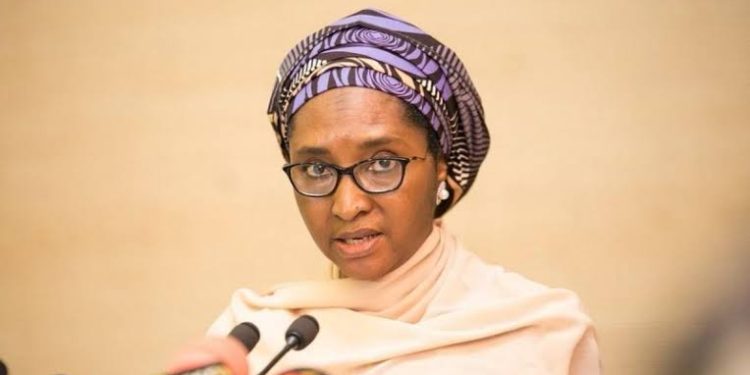By Enyichukwu Enemanna
Nigeria’s Minister of Finance, Budget and National Planning, Zainab Ahmed, has attributed the delay in removal of subsidy on petroleum to the ongoing electioneering activities across the 36 states of the Federation and the Federal Capital Territory, Abuja.
Nigeria on Feb. 25 held presidential and parliamentary elections which has since been disputed amidst allegations of manipulations against the electoral management body, the Independent National Electoral Commission (INEC). The presidential election produced candidate of the governing All Progressives Congress (APC) Bola Tinubu as winner, making him a president-elect who will be sworn-in May 29.
State elections which will produce new governors in 28 states and House of Assembly members will hold on Saturday, March 18 following a last-minute shift in date of March 11.
But the minister is confident that the subsidy petrol will be removed before the end of incumbent President Muhammadu Buhari’s tenure on May 29, 2023.
The minister, according to the Voice of Nigeria (VON), spoke during a courtesy visit to the headquarters of VON in Abuja where she also disclosed that Nigeria spends about N250 billion monthly on subsidy.
Nigeria is the second largest oil producer in Africa beside Angola, yet largely depends on the importation of refined products to serve the over 200 million population of the West African nation at a “subsidised” cost, something that has come under questioning amidst allegations of corruption.
On Wednesday, the Federal Executive Council headed by Buhari disclosed that no conclusion had been reached on how to mitigate the effect of the proposed fuel subsidy removal on the citizens.
“The fuel subsidy is one of those political, economic decisions that you don’t want to have, but you’re stuck with it anyway. But we’ve come to the point when almost everybody has agreed that this is really not serving the people that it is supposed to serve and the cost of it has become so high that it’s adding to our deficit.
“And right now, we have an approval within the Appropriation Act to exit subsidy by June 2023. Or at least, I can say, the Appropriation Act made provision that only allows subsidies up to June 2023.
“So, we have to find ways in which we have to remove the subsidy and allow the market to flourish. When you remove the subsidy, then you have marketers that would be able to invest and bring this fuel product and sell it at market prices right now. And NNPC is the sole importer, it is imported and it is limited to an official price.
“So the subsidy per litre now ranges anything from N350, sometimes up to N400 per litre. The subsidy that government is carrying, just imagine what you can do with N250 billion per month, because that’s the average cost per month to the nation. That is even the cost to NNPC, there’s an implicit subsidy of forex”, the Minister said during his visit to VON, state-owned broadcast station in Abuja.
The federal government had in January 2022 said the removal will cause pains on the poor and vulnerable masses that are currently battling multi-dimensional poverty. She believes that the huge amount spent on subsidising the cost of shipping finished petrol products could be invested in building more hospitals, schools, improving infrastructure and other critical sectors that would have visible positive impacts on Nigerians.
She stated, “You can build more hospitals, more schools, provide more social services, improve infrastructure that will enhance the quality of life of the people, instead of just using it on a consumption item. You put gas in your car and in a couple of days it is gone and then you have to put again.
“So we do hope that this time around, that the whole country will work with the government to get rid of this subsidy to save us from continuously expending limited resources on a consumption item.”
Ahmed advised the next administration to increase VAT to 10 per cent, saying this would stimulate the country’s economic growth.



































